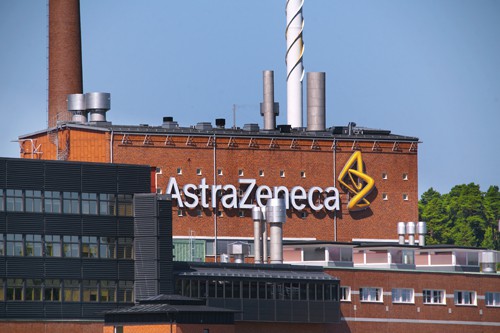
A year ago, prospects for AstraZeneca’s systemic lupus erythematosus treatment anifrolumab were being written off. Now, the programme has bounced back.
AZ has now completed two phase 3 trials of anifrolumab – a type I interferon blocker – with starkly different results. Last year, the 460-patient TULIP 1 study was a bust, with the antibody failing to meet its objective of reducing disease activity as measured by the SLE Responder Index 4 scale (SRI4).
Fast forward to this year, and in the 373-subject TULIP 2 study the drug has hit the mark on disease activity using a different scale – the British Isles Lupus Assessment Group-based Composite Lupus Assessment (BICLA) – after 52 weeks.
Lupus is a disease in which the immune system attacks normal cells and tissues, causing inflammation and organ damage. Both BICLA and SRI4 are well-recognised measures for testing drugs against the disease, but have a slightly different focus.
A BICLA response requires partial improvement in all organs and no flares, while SRI4 requires full improvement in some manifestations of the disease, but not all organs. Meanwhile, as well as a different scale, TULIP 2 also used only the highest dose of anifrolumab (300mg) used in the first trial.
SRI4 measurements are tried and tested from a regulatory perspective, having been used to back the US approval of GlaxoSmithKline’s Benlysta (belimumab) in 2011.
That ended a 50-year drought in lupus treatment approvals by the FDA and Benlysta quickly became the market-leading drug for lupus with sales of £473m ($575m) last year, almost entirely from the US.
BICLA has also been used in drug development programmes, for example with UCB’s lupus candidate epratuzumab, although that drug failed to show a significant impact on disease activity using the scale and was dropped from development.
The scale hasn’t yet been used in a successful regulatory application, but is mentioned as an acceptable outcome measure in guidance on lupus drug clinical development in Europe, though not in the US.
With that in mind, AZ now has to determine whether one positive trial will be enough to file for regulatory approval of anifrolumab or if it will have to carry out a second, confirmatory trial.

Mene Pangalos, chief of R&D, AZ
On that front, R&D chief Mene Pangalos simply said: “these are important results and we will now review the full data set and explore pathways to bring this potential new treatment to patients.”
Benlysta has been a rare success in lupus, with a string of other drug candidates failing to show activity in trials, including most recently Biogen and UCB’s anti-CD40 drug dapirolizumab pegol, Ablynx’ IL-6 inhibitor vobarilizumab, and ImmuPharma’s immune modulator rigerimod.
There are some encouraging signs with other drugs however, including mid-stage clinical results with Incyte/Eli Lilly’s Olumiant (baricitinib), Johnson & Johnson’s IL-12/IL-23 inhibitor Stelara (ustekinumab) and preliminary data with Roche’s CD20-tareitng antibody Gazyva (obinutuzumab).




